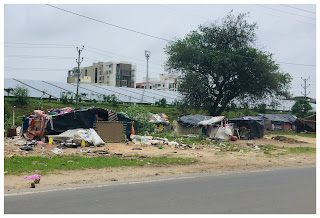Poverty

Poverty
Poverty is defined as the lack of the means & necessities necessary to maintain a basic quality of existence. It can also be explained as a situation in which one's income from job falls short of meeting fundamental demands.
The World Bank defines poverty as a serious loss of wellbeing that takes many forms. E.g include being low incomes and being unable to afford the necessities for a decent life, such as goods and services.
Poor physical and mental health, inadequate education, an absence of access to sanitation facilities, an absence of physical safety, a lack of voice, and the inability to change one's circumstances are all examples of poverty.
Important details regarding poverty include,
Hunger and a lack of housing these are two fundamental aspects of poverty.
Being in poverty is having only the minimal essentials of life. when people or family are unable to afford health facilities or when parents are unable to send their children to school.
Another aspect of poverty is the absence of sanitary facilities and access to clean water.
lack of a stable jobs that would allow one to support oneself or meets the requirements of life.
Types of Poverty
The following are the main type of poverty
Absolute Poverty
if any family's income income falls short of what is required to sustain basic standards of living (food, shelter, housing). This situation makes it possible to make comparisons throughout time and between various nations..
Relative Poverty:
A lower level of living than the native population's economic norms is how it is described from a sociological standpoint. As a result, it serves as a gauge for economic disparity.





